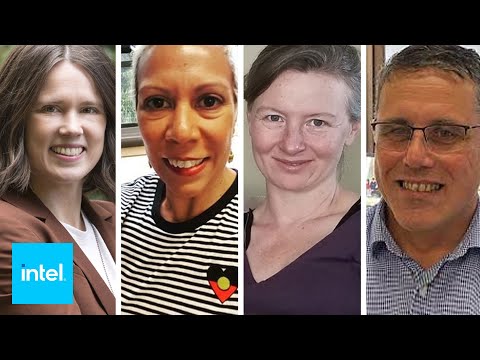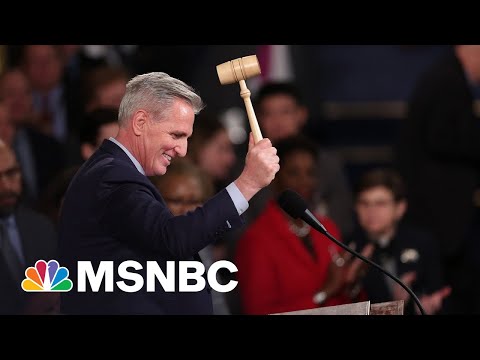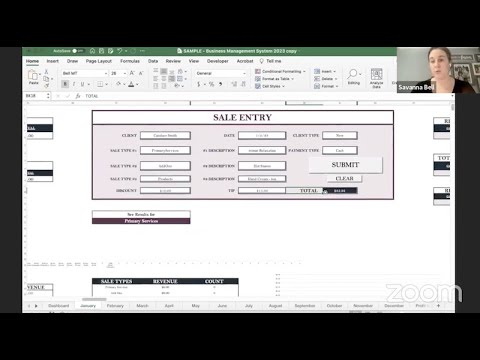Indigenous Data Sovereignty | Intel Business

(calm music) - [Presenter] Welcome to "What That Means With Camille," companion episodes to the "InTechnology" podcast. In this series, Camille asks top technical experts to explain in plain English, commonly used terms in their field. Then dives deeper, giving you insights into the hottest topics and arguments they face.
Get the definition directly from those who are defining it. Now, here is Camille Morhardt. - Today we are going to talk about what that means, indigenous data sovereignty. I have three people with me today.
We have Dawn Nafus, who's an anthropologist and senior research scientist at Intel Labs. We have Bobby Maher, who's member of the Maiam Nayri Wingara Indigenous Data Sovereignty Collective in Australia, joining us from Australia. And we have Karaitiana Taiuru who is part of the, well, he's a Maori indigenous data specialist, joining us all the way from New Zealand. Welcome, everybody.
So I think we're gonna have to start the old fashioned way and just ask one of you to define indigenous data sovereignty. - I just wanna acknowledge that I'm calling in from the traditional lands here of the Ngunnawal and Ngambri peoples in Canberra, and just to pay my respect to their elders past, present and emerging. So the way in which we define indigenous data sovereignty is the right of indigenous peoples to govern the collection, ownership and application of data about indigenous communities, peoples, lands and resources. - So thank you. So my first question is, why does this need to be looked at or considered differently than collecting data of any other human being? Why is there even a term indigenous data sovereignty? - Historically, for indigenous peoples data has been used, it's been weaponized against us.
So it's been used as a mechanism to exclude us, to portray us in a very deficits and problematic lens. We have been invisible really, in kind of the production and the reuse of data about us. - When we think about data collection, is this kind of amplified in the world of artificial intelligence and just internet collection of large quantities of data? Has this always been an issue or is it a more recent issue? - It's always been an issue, but I think traditionally, at least for Maori, it's not been an issue that's been discussed because we've always been fighting for social inequities, health inequities, getting land back and basically fighting racism in the system.
And they're all things that you can physically see, things that you deal with every day. Yet when it comes to data, it's not something you really see or know about unless you work in the digital area. So it hasn't really been an issue at the forefront for Maori up until about maybe four years ago. - So one of the things that Bobby's mentioned to me in prior conversation is it's not just about collection of data and stewardship of data, it's about constructs that the data is being looked at. And I'm wondering if you guys can go into a little bit more detail on that.
- Professor Maggie Walter has constantly written about and spoken about how data and the use of datasets sort of to inform, you know, public policy is often used, she refers to it as the 5D data. So what she's talking about is differences, deprivation, dysfunctional, disadvantage and disparity. So data that represents those. And again, she also uses this term of "badder" data, which is about blaming, it's about aggregating the data, decontextualizing the data. It's using deficits data and restricted access.
So we, as indigenous peoples, are not able to access that data. In particular, this thing around aggregating the data is really problematic because as First Nations people here in Australia, we are very diverse within our own nations. And so within that diversity, we will have different life worlds. We'll have different values and priorities. That is actually not taken into account then when particular policies and strategies are actually being developed and being implemented as a way of, you know, helping indigenous peoples. It's not actually telling the true story of who we are as First Nations people in Australia.
- Karaitiana, do you have a take on that? - Oh, basically, I support everything that Bobby said. An example for New Zealand Maori is with the COVID-19 rollout of immunization. There's a deep mistrust by Maori populations of the health system.
There's been generations of discrimination. Other groups wanted to use health data to visit communities that needed the COVID rollout. The Ministry of Health in New Zealand basically said, "No, you can't have it."
They ended up going to the high court and the high court said that the Ministry of Health must reevaluate their decision to provide Kiwi, or the tribes, the data. 'Cause in New Zealand we have a constitutional document called the Treaty of Waitangi, Te Tiriti o Waitangi. And that gives a number of protection mechanisms to Maori, including to resources which include data. If we had access to that data early, we could have improved the health outputs of a number of Maori communities. - So you're saying that in this example there's maybe health information or health data collected about a certain population or at least the data is segmented by various kinds of, I guess we could call them arbitrary or real segmentations or classifications of people. And in this case then the actual communities where the data is gathered no longer have access to the data that's collected? - That's correct.
And despite the government having access to the data and knowing which data is Maori and which data is not Maori, it's not shared with community providers to enhance the communities. - So another, I guess question is there's different kinds of privacy regulations when it comes to data that we see around the world. And I know that those are really not orchestrated or standardized globally, but there's things in place like for example in the EU, GDPR, sort of a general privacy regulation for individuals.
Is this similar or is there a kind of a different lens to look at this? - In New Zealand, we have our own privacy laws, and again, we have the Te Tiriti o Waitangi, the constitutional documents, which also say that the government must co-govern and co-design with Maori. Now if they did that with data, then all the data sovereignty principles, indigenous or Maori principles would then be recognized and then we would be able to share and fight inequities with especially health data, or data in general. - One thing you were saying, Karaitiana, is this notion of data belonging to an individual is kind of culturally specific and not specific to Maori. I'm wondering if you can elaborate on that a little bit. - So prior to colonization, everything was communally owned and there was no one person owned something.
We have a concept called Kaitiakitanga which means that you are the guardian of a resource and it's your role to make sure that resource is looked after, in better condition or more healthier than when you got it for the next generation. In terms of data, we have tribal, yeah, tribal ownership of data, and then only some data would be considered personal data and that could be your personal health record. But then from a tribal perspective, sharing high level data is acceptable from a Maori perspective. - One of the other kind of questions I think, you know, Bobby, you were talking about this too, you're saying the categorization of deficit and viewing a population, asking even the way that you structure an experiment or a questionnaire or a survey or something or the way that you're looking at information or cutting data is going to then put a certain population in deficit. Maybe those questions themselves are biased inherently by the culture who's asking them. I'm wondering if you can talk about that more? - Yeah, I guess the way in which, you know, what we refer to as administrative data, so it's our national statistical officers that run these national surveys.
Asking indigenous people's questions within that survey. It's very much framed from a western lens. And I guess one of the issues around then the analysis is that we are constantly then being compared to the non-indigenous population where we have very different worldviews and values and perspectives and priorities. - That is interesting. And Dawn, from your perspective, kind of embedded in a major technology company, I'm wondering how you look at applying Karaitiana and Bobby's input? - The situation I see today is one where my engineering colleagues, you know, sort of across companies as well as in my own, you know, they'll be able to say, "Sure, we can get this and that data set and, you know, parse it by demographic categories" but that extra step that shouldn't be extra at all that both Bobby and Karaitiana are talking about, to then ask, "Wait, why and how is this data being collected at all, by whom and to what ends?" Those questions get really hard, really fast and either they're sort of pushed down the, you know, down the chain, we don't wanna think about them or, you know, somehow it's magically too hard when you ask them a more fundamental question.
And I just see constant evidence of it getting skirted around and the very real issue of who is data for is just so darn hard to ask. And I think especially when you're talking about issues of sovereignty. One of the things I'm particularly concerned about here is, you know, since we're talking a lot about medical data, right? One of the areas for example, that many technology companies are very excited about is using natural language processing in medical records, right? So sort of looking through medical records and doing you know, summarization or sort of analysis and it's like, wait a second, if that's gonna happen, how the heck are you going to be able to, you know. If the problem is already, we have different notions of what bodies are, what care looks like, who should be caring for whom. If that's already going on in a clinical setting, right? If there's gaps there and then you're sticking NLP on top, right? That's a disaster waiting to happen, right? So I think we really do have to start at this data level, and these really key questions that, you know, both of these scholars are raising.
- One thing with indigenous data sovereignty is the way it's enacted is through indigenous data governance as well. And so this is a really important element. The two go together, the importance of having indigenous data governance to be able to govern the control and the access of data. - I have to ask about sort of a framework I guess, for this, because I'm thinking about all different kinds of people whose data is collected, that can then be broken down by all different sorts of, any kind of category you can think of. I think, typically by, you know, female, male breakdown.
At least in the United States, a lot of the breakdown is by race, right, slash ethnicity, I'll say. There's other ways that people break it down, by education level, by income level. Those are some just common ones that I've seen in data. And I'm wondering.
In this case you're saying there is, you know, group of people, indigenous people, or Maori people in this case who want the right to govern and manage access to that data and have access themselves to the data that's collected and maybe even participate in the questions being asked and the segmentation that's being done. How does that apply to kind of broader humanity? So if you're breaking this apart, you know, if you're breaking data down by sex or gender, then how do you give that same kind of management or control to people who are not in a collective or a group? - I think in terms of indigenous peoples we all belong to community collectives and groups. The most indigenous peoples I know of, this is normal, having, you know, tribes or community groups.
So I guess the question would be how to apply those same principles to non-indigenous peoples. But then just my personal opinion is that from a western perspective, those community groups don't exist and aren't applicable. So from my western genealogical connections, I wouldn't want community groups having access to my data but I'm more than happy, from a Maori perspective, for my Maori community groups to have access because that's normal for me. - You may have ties to a western culture, we'll call it, whose maybe government for lack of a better term, you don't necessarily want to have access or view to your data. And for that, something like GDPR might protect you. I know that's specific to the EU, but when it comes to indigenous data, you're saying that aspect of you at least speaking for yourself, you trust.
Is that because there's an inherent trust there with the governance and so it's okay for that entity to have access to your data? And I think you mean an aggregate, like without personally identifiable. - My perspective is that it's a community or a communal benefit to my community. So I'm happy for that. If it was my, say my suburb in Christchurch that I live in, wanting access to my data, I'm not related to anyone in my suburb. There's no genealogical connections whatsoever and we can move in and out of the suburb and people do. So I wouldn't want that to be shared with the community.
But yeah, as I say with my Maori communities, it's a intergenerational commitment we have to each other. So I want my data to be shared. - Very interesting.
And also kind of your point, Karaitiana, that it's not applicable, this concept of data belonging to a collective is not necessarily applicable outside of indigenous communities. I'm sure there may be an example. - There are a couple of exceptions to that rule. I work in places where our mental health is a real problem and that is one example where actually people do want data pooled locally for a particular reason because there's a collective harm happening. So they'll kind of get past all the other constraints to sort of create that collectivity. But no, it does not fall, you know, as everyone else here is saying it doesn't fall along, you know, the traditional sociological demographic categories, it's not about that.
- So it's almost like a self-identified collective is kind of where that line is drawn. I'm trying to figure out like how you apply this in technology because is it just something that you apply then to the indigenous community that's requesting or is it something that you are trying to apply more broadly? And if so, how do you understand the definition of a collective and how do people opt into that? - In New Zealand, Maori society is made from what you would call a tribe. And a tribe consists of a number of what you you'd call clans and clans are made up of a number of families.
So in New Zealand the way to achieve Maori data sovereignty would be to use the tribal names, the clan names and the geographic locations names. And then for people to be able to opt out, every Maori person is born with that biological connection. But some don't choose to be Maori. Giving people the opt out opportunity would certainly solve that issue and allow the communities to access the data.
- You know, there's two things that we hit on that I wanna talk about a little bit more. And one is this notion of structuring questions. I'll just say structuring data, how you're slicing and dicing data what you're asking and what you're looking at. Rather than working hard to just remove bias or identify bias.
Looking, reaching into communities that you're attempting to represent with the data to make sure that the questions themselves are pertinent and relevant. And can we talk more about how that would happen? - This is where data governance is really important as well because you would want to work with representatives who, they're not speaking for that collective, but they have a relationship with that collective, for the contextualization of what that data is going to represent. It needs to be coming from the interests of those people who the focus is on. - And I guess just to add onto that, if it's okay. One of the things I hear going on in the tech world is this impulse to do some level of public outreach, but in the form of education and which to me just doubles down on the very problem that Bobby just talked about which is, you know, maybe that's not actually what the public needs at all.
Like, right. Maybe instead the information needs to flow the other way a little bit, right, before we can even get to a discussion. So one thing that comes up time and time again is this idea of, well, you know, they really, you know. If part of the problem is that the data collection happens by and for a narrow and privileged group of folks, that we need to change who's doing that data collection and that data analysis.
And I just was hoping both of you would talk about sort of how you think about that. Is that an important direction? Are there also limitations to that kind of approach? How does that approach situate in the sorts of things that you care about? - So yeah, I think it's important to co-design and co-govern and co-manage with New Zealand with Maori communities. If you don't, then the western perspective becomes the dominant truth of the data. It's common for Maori as well to have multiple generations in a home, that's not because of poverty.
It's not because of bad parenting or anything, it's because it's our culture, it's how we live. Yet if those perspectives aren't incorporated at the start, it's yeah, it does end up being biased from a western perspective. - Yeah, and I think one of the things that we are sort of focusing a lot of our energy in is how we start to build capability within communities around data literacy, data analysis and really just understanding, you know, what data is and what it can actually do for indigenous peoples and communities.
Like, that's really important to, you know, empower people and for the self-determination of people's own sovereignty and control. - So the other thing that you have mentioned is indigenous peoples are not a singular group but you're saying specific, you know, there's multiple different tribes as you said. And so talk about how, you know, I guess how the tribes are working together on this call for data sovereignty and then how you reconcile, kind of those differences among the different people that are in the collective together. - In New Zealand, we have, I think we have about 115 different tribes. Many of those tribes have formed a group who consult with the government. But overall, most tribes want the same things.
We want inequities to be rectified within health, education, the justice system, throughout everything. So it's not really too difficult. The issues would be when the clans want specific data 'cause it's very, very different throughout the whole country. - Is there any big topic within the topic of indigenous data sovereignty that we've not covered in this conversation? I know we didn't have time to go in a lot of depth, but.
- I am part of GIDA, which is the Global Indigenous Data Alliance. There is this focus on what is known as the FAIR principles. So that sort of translates to findable, accessible, interoperable and reusable.
That's sort of the breakdown of it. But these principles are quite data centric. And then when we are thinking about indigenous peoples you know, we come from this, this place of, you know, being people centric and purpose centric. Like being able to center sort of indigenous worldviews and practices and you know, the collective. So the care principles really break down to like the collective benefit.
The authority to control, the responsibility and then ethics in relation to data practices. - Probably something else that's worth mentioning is the United Nation's Declaration of the Rights of Indigenous Peoples. Now I'm pretty sure Australia, Canada and America didn't sign it, but I could be wrong, but every other UN country did sign it and that gives indigenous peoples a number of rights to data. So data scientists in a UN country should be familiar with UNDRIP. - Well thank you both so much. I really appreciate the conversation and it's been really educational and informative to me.
I had not heard of indigenous data sovereignty and now I see it as like an absolute imperative that everybody should know about in the tech world. So thank you so much for giving us an introduction. - [Presenter] Never miss an episode of "What That Means With Camille," by following us here on YouTube or search for "InTechnology" wherever you get your podcasts.
- [Narrator] The views and opinions expressed are those of the guests and author, and do not necessarily reflect the official policy or position of Intel Corporation.
2022-12-07 20:06


